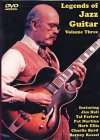![Arthur [1981]](/pictures/1016400.jpg) Arthur | DVD | (17/04/2019)
from £8.95
| Saving you £5.04 (56.31%)
| RRP
Arthur | DVD | (17/04/2019)
from £8.95
| Saving you £5.04 (56.31%)
| RRP When you get lost between the moon and New York City (ahem), chances are you'll find yourself taking another look at this hit comedy starring Oscar-nominated Dudley Moore as the charmingly witty, perpetually drunken millionaire Arthur Bach. Arthur falls in love with a waitress (Liza Minelli) who doesn't care about his money but unfortunately Arthur's stern father wants him to marry a Waspy prima donna. The young lush turns to his wise and loyal butler (Oscar-winner John Gielgud) for assistance and advice. Arthur was a huge hit when released in 1981, as was its Oscar-winning theme song by Christopher Cross. Few remember that the movie was,sadly, the only one ever made by writer-director Steve Gordon, who died less than a year after the film's release. Consistently funny and heartwarming, Arthur was hailed as a tribute to the great romantic comedies of the 1930s. --Jeff Shannon
![Arthur 2: On the Rocks [DVD] [1988]](/pictures/1107382.jpg) Arthur 2: On the Rocks | DVD | (04/04/2011)
from £N/A
| Saving you £N/A (N/A%)
| RRP
Arthur 2: On the Rocks | DVD | (04/04/2011)
from £N/A
| Saving you £N/A (N/A%)
| RRP His loss is your entertainment gain in the delightful riches-to-rags sequel directed by comedy veteran Bud Yorkin (All In the family). Effervescent Dudley Moore takes up where he left off as the multimillionaire titles prankster. Liza Minnelli is his scintillatingly sassy spouse Linda and with a dash of divine intervention stately John Gielfud also reappears in his Oscar-Winning role as Arthur's acerbic valet.
![Charly [1968]](/pictures/1013091.jpg) Charly | DVD | (02/07/2001)
from £N/A
| Saving you £N/A (N/A%)
| RRP
Charly | DVD | (02/07/2001)
from £N/A
| Saving you £N/A (N/A%)
| RRP Released in 1968, Charly is a period-piece from the summer of love when "natural" was nirvana, the air hummed with the mantra "Everybody's beautiful", and all ills stemmed from institutional monoliths such as Science, Government, Education, and Religion. It is adapted from Daniel Keyes' novel Flowers for Algernon and its hero, Charly (Cliff Robertson), is 30 years old and mentally handicapped. His innocent sweetness makes him superior to most able-minded folk, whether they're the bigoted dolts he sweeps floors for or the ambitious scientists who see him as the human equivalent of Algernon, a mouse they've surgically (but impermanently) smartened up. Naturally, post-op Charly, sporting a genius IQ, "sees things as they are". Trotted out as the neurosurgeons' poster boy, he stands up to the "learned" audience--shot as faceless, inhuman interrogators. He's every 60s flower child, berating his "elders" for blighting their brave new world. The one reward Charly derives from his higher IQ is sex. In a lengthy montage resembling a retro TV commercial, he and his teacher (Claire Bloom, a madonna with an eternal Mona Lisa smile) romp through Edenic gardens, their embraces hallowed by sunlight glinting through leaves, moonlight glinting on water, and sappy Ravi Shankar music (stylistic clichés also include embarrassing outbreaks of split screens and multiple small screens within the frame, notably when rebellious Charly turns biker). Robertson's performance is well-meaning but mawkishly sentimental. Still, in the penultimate moments when Charly begins to slide back into mental illness, the actor achieves a genuine tragic gravity, and he became a surprise Oscar winner for his pains. --Kathleen Murphy, Amazon.com
 Legends Of Jazz Guitar - Vol. 3 | DVD | (12/12/2012)
from £16.37
| Saving you £8.62 (34.50%)
| RRP
Legends Of Jazz Guitar - Vol. 3 | DVD | (12/12/2012)
from £16.37
| Saving you £8.62 (34.50%)
| RRP Featuring more jazz guitar legends including Barney Kessel and Jim Hall.

Please wait. Loading...
This site uses cookies.
More details in our privacy policy